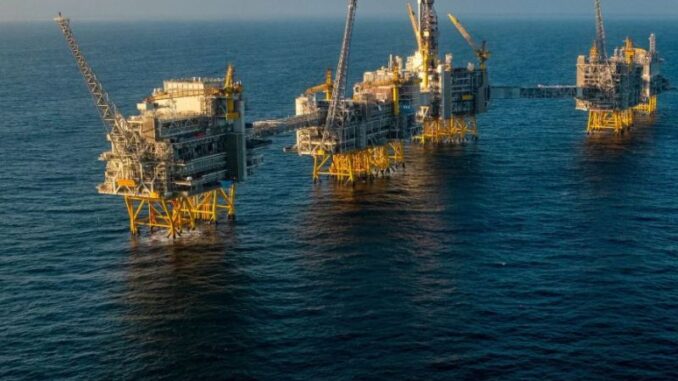
Under the Labour government, North Sea operations face a barrage of measures that critics argue are deliberately stifling investment and production. A 78% tax rate on offshore profits, including a prolonged windfall tax introduced in 2022, has shattered investor confidence and led to slashed capital expenditures.
Operators have cut UK investments, with production projected to plummet to 21 million tonnes by 2035—far below what could be achieved with supportive policies.
Tax revenues, once forecasted at £16 billion for 2025-2030 by the Office for Budget Responsibility, are now expected to yield only £6 billion.
Adding to this, a ban on new drilling licenses and stricter environmental guidelines require projects to account for downstream emissions, effectively making many ventures unviable.
These rules, issued in June 2025, weigh economic benefits against climate impacts, often tipping the scales against fossil fuels.
Are you Paying High Taxes in New Jersey, New York, or California?
Even pressure from international figures like former U.S. President Donald Trump has failed to sway the government, which prioritizes renewables over expanded extraction.
The rationale? A commitment to net zero emissions by 2050, driven by environmental advocacy and international obligations like the Paris Agreement.
Groups like the Green Alliance and Offshore Energies UK have pushed for a “just transition” away from oil and gas, emphasizing job creation in clean energy sectors.
However, detractors, including some green entrepreneurs, argue that halting new projects ignores short-term energy needs and could lead to greater reliance on imported fuels from less regulated regions.
EU Policies: A Broader Green Agenda Constraining the Basin
The North Sea isn’t solely a UK affair; it spans EU nations like Denmark and the Netherlands, where similar policies are at play. The European Union’s Green Deal and REPowerEU plan aim to phase out fossil fuels, reducing dependence on Russian imports while accelerating renewables.
New methane import standards, effective from 2025, impose stringent reporting and reduction requirements on exporters, posing commercial risks to North Sea producers—particularly private equity-backed ones.
Reports from organizations like Oil Change International criticize North Sea countries for policies misaligned with climate goals, rating them poorly on phase-out commitments.
In Denmark and the Netherlands, production is winding down with a focus on emissions reductions within operations, such as efficiency improvements and electrification.
The EU’s broader strategy anticipates an 8% drop in oil supplies from current providers by 2030, pushing member states toward diversification.
While Norway (a non-EU North Sea player) continues robust production, EU policies indirectly undercut the basin by favoring imports from low-emission sources and subsidizing green alternatives over fossil fuel funding.
These measures stem from a unified push for climate action, but they risk amplifying energy vulnerabilities. As the UK and EU prioritize net zero, North Sea output declines faster than renewable capacity ramps up, exposing economies to price shocks and geopolitical risks.
The Broader Impacts and the Path Forward
By undercutting North Sea production, governments are trading long-term climate gains for immediate energy pains. Lost revenues, job cuts in the offshore sector, and heightened import dependency could deepen the 2025 crisis, where price volatility already burdens millions.
Critics, including the Conservative Party, call for unleashing the basin’s potential to secure domestic supplies and stabilize bills.
Even some within Labour hint at potential U-turns amid political pressures like those from Nigel Farage’s net-zero skepticism.
A balanced approach is needed: Maintain the net-zero trajectory but ease fiscal burdens, incentivize recovery technologies, and integrate North Sea resources into a realistic transition plan. As Wood Mackenzie’s findings show, the North Sea’s story isn’t over—it’s being rewritten by policy, not geology.
Failing to adapt could turn today’s crisis into tomorrow’s catastrophe.
When considering the total collapse of the UK and the EU from a financial perspective due to policies aimed at meeting the Net Zero energy policy goals and timelines, it raises questions about how they will power factories to build war equipment and power those items. Given their apparent push to keep the Ukraine war going, you would expect them to have a plan to keep the tanks operational. Face it, the Bank of London is broke, and it needs a war to print money, but I have a feeling that the UK and the EU can’t win the Ukraine war. President Trump looks like he is going to sit this one out, and it will be interesting to see how the war mongers can survive.
Investing in U.S. oil and gas, midstream, or LNG appears to be a sound investment.
Avoid Paying Taxes in 2025
Crude Oil, LNG, Jet Fuel price quote
ENB Top News
ENB
Energy Dashboard
ENB Podcast
ENB Substack






